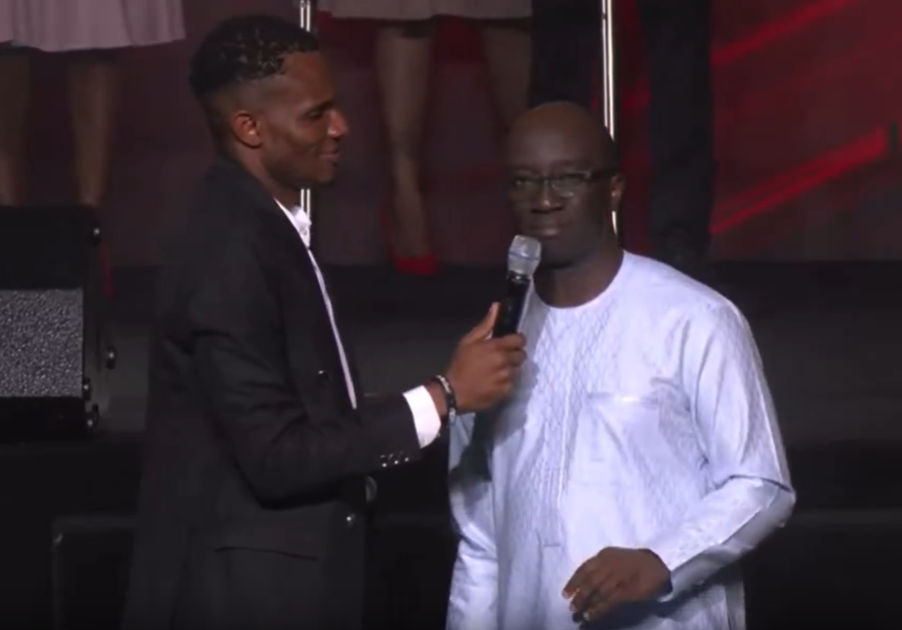The Nigerian online sphere erupted in controversy following a testimonial given by Edo State Governor, Monday Okpebholo, at Streams of Joy Church, led by Pastor Jerry Eze. The governor, fresh off his re-election victory, attributed his success to divine intervention, a declaration that ignited a firestorm of criticism directed at Pastor Eze. The crux of the contention revolved around the widely held perception that the Edo State governorship election was marred by irregularities, thereby casting doubt on the authenticity of the governor’s claims of divine favor. This perceived disconnect between the alleged electoral malpractice and the governor’s public thanksgiving sparked accusations against Pastor Eze for seemingly endorsing a flawed electoral process and, by extension, mocking God.
The controversy gained momentum with influential voices adding their perspectives to the debate. Ose Anenih, son of a prominent political figure, publicly condemned Pastor Eze for providing a platform for what he termed “society’s perversions.” Anenih’s critique highlighted a lament for a bygone era where religious leaders supposedly held political figures accountable, contrasting it with the current perceived tendency towards complacency and validation of questionable actions. This sentiment resonated with many online commentators who questioned the appropriateness of celebrating a victory tainted by allegations of rigging within a sacred space. The incident became a focal point for broader discussions about the role of religion in politics and the perceived erosion of moral authority within religious institutions.
Adding fuel to the fire was the moderator’s remark during the governor’s testimony, suggesting that God uses “foolish things” to demonstrate His power. This statement was interpreted by critics as a trivialization of the electoral process and an insult to the electorate. It further underscored the perceived insensitivity of the church leadership to the public’s concerns about the integrity of the election. The combination of the governor’s controversial testimony and the moderator’s seemingly dismissive comment created a perfect storm of online outrage, with many accusing Pastor Eze of prioritizing political expediency over spiritual principles.
Beyond the immediate controversy surrounding the governor’s testimony, the incident triggered a wider conversation about the evolving landscape of Nigerian Christianity. Some commentators expressed concern about the increasing commercialization of faith, suggesting that pastors like Jerry Eze were more concerned with attracting influential figures and accumulating wealth than upholding moral and ethical standards. This critique reflected a broader unease with the perceived blurring of lines between faith and politics, and the potential for religious platforms to be exploited for personal gain. The Edo State incident became a microcosm of these anxieties, serving as a lightning rod for criticism directed at the perceived failings of contemporary religious leadership.
However, not all online voices condemned Pastor Eze. Some argued that he was merely providing a platform for testimony and should not be held responsible for the content of that testimony. They contended that it was the governor’s prerogative to offer thanks, regardless of the surrounding political controversies, and that denying him the opportunity would be an overreach of pastoral authority. This perspective highlighted the delicate balance that religious leaders must strike between providing spiritual guidance and respecting individual agency. Furthermore, some argued that criticizing Pastor Eze was a distraction from the real issue, which was the alleged electoral malpractice. They suggested that focusing on the pastor’s actions deflected attention from the need to address the systemic problems that plague the Nigerian electoral system.
The incident involving Governor Okpebholo’s testimony at Streams of Joy Church ignited a complex and multifaceted debate about the intersection of religion, politics, and societal values in Nigeria. The ensuing online discourse exposed deep-seated concerns about the perceived decline of ethical leadership, the commercialization of faith, and the role of religious institutions in holding power accountable. While some defended Pastor Eze, arguing that he was simply fulfilling his pastoral duties, the overwhelming response pointed to a growing disillusionment with the perceived complicity of religious leaders in perpetuating political injustices. The incident served as a stark reminder of the ongoing tensions between faith and power, and the challenges faced by religious institutions in navigating the complexities of a rapidly changing socio-political landscape.


